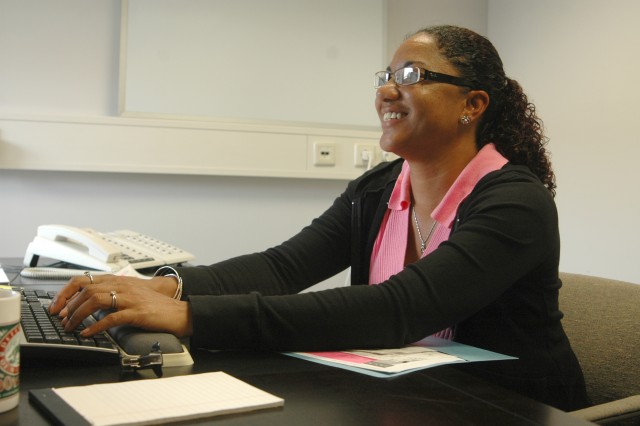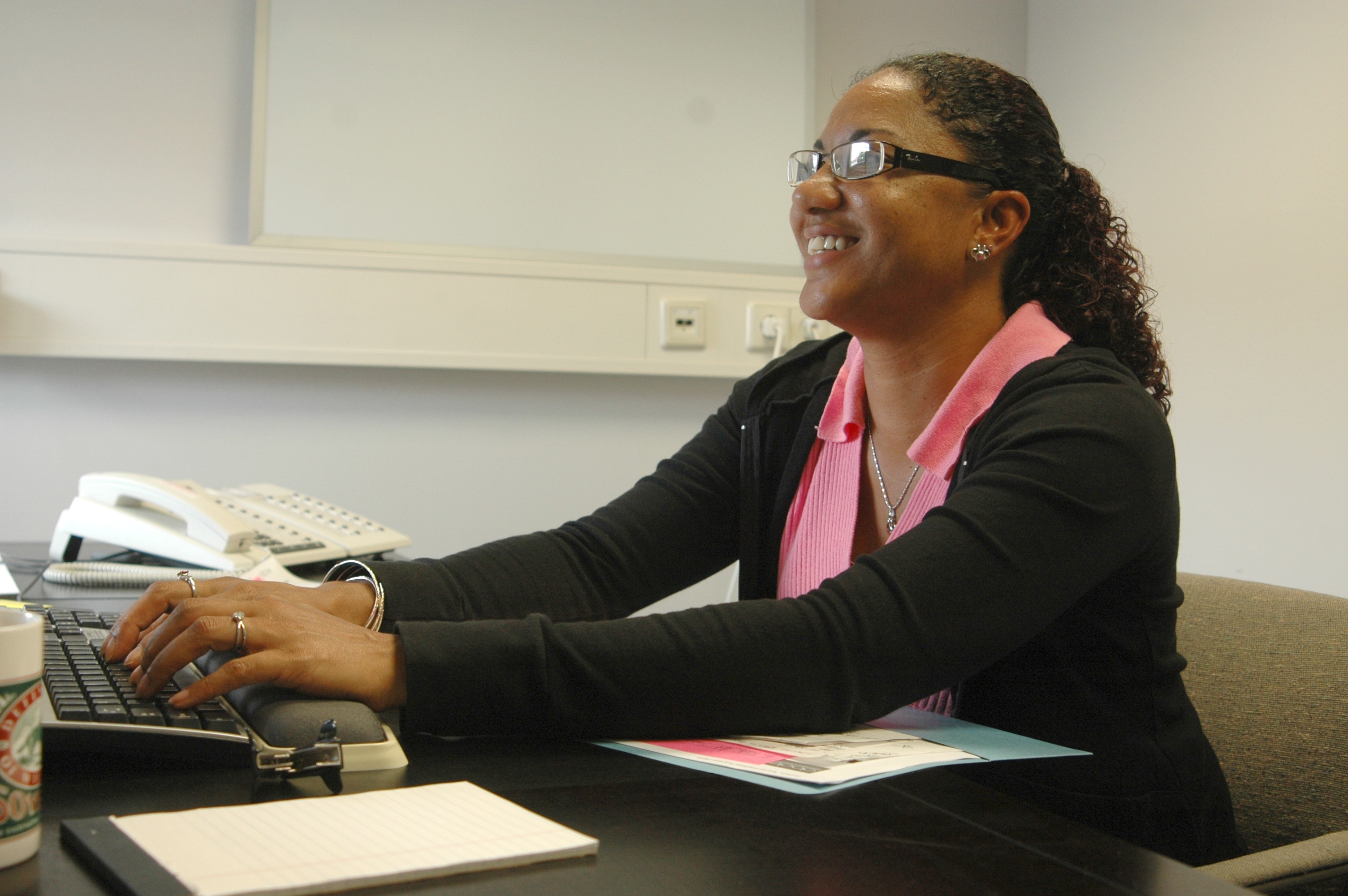HEIDELBERG, Germany -- For Estrellita Austin-Wimbush, coming to Germany to work for the federal government has been a long road.
She's here now, though, working in the U.S. Army Garrison Baden-WAfA1/4rttemberg Equal Employment Opportunity Office, thanks to the Workforce Recruitment Program for College Students with Disabilities.
The WRP is a joint effort cosponsored by the Department of Labor and the Department of Defense, with participation from about 20 additional federal agencies.
It is a recruitment and referral program that connects federal sector employers with postsecondary students and recent graduates with disabilities. Since 1995, the WRP has provided employment opportunities for nearly 5,000 students.
Austin-Wimbush arrived in Heidelberg in June and will complete her work here toward the end of September.
So far, she said it has been a fantastic opportunity, and she is keeping busy as an EEO technician, "like an EEO specialist in training," she said.
The road here for Austin-Wimbush included lots of schooling - she has an associate's degree in business with an emphasis in accounting, a bachelor's degree in psychology with a minor in early childhood development and a master's degree in mental health counseling.
Her disability is attention deficit hyperactivity disorder, something that wasn't diagnosed in her until age 39, around eight years ago.
"It was such enlightening information ... that was just like the greatest thing that could have ever happened to me," she said of the diagnosis, "because I had gone through life thinking I'm not very bright. Because I just couldn't get it like everyone else, and I didn't know I can get it, I just have to get it differently and I didn't know that. So I just thought I wasn't very smart."
She said she had attempted college several times and said she just couldn't finish.
"Once I got diagnosed, from then on my GPA went up," she said. "I just graduated with my master's with a 3.96. And that's due definitely to know the learning disability that I had and learning how to manage it."
Bonnie Ballard is Austin-Wimbush's supervisor during her tenure with the EEO office. Ballard said in the short time she's been here, Austin-Wimbush has already proven invaluable to her office, filling in spaces that couldn't be filled due to budget constraints and educating others about ADHD.
"Actually, if we look at funding, for example, I have lost two slots they say I can't hire," Ballard said. "There are a lot of organizations like that. So these students here are very capable. Just because they have some sort of disability, it doesn't mean that they can't produce.
"My student has a learning disability. She may not be able to do a project as fast as a person that does not have that disability, but she can get it done - she has a master's degree in mental health counseling."
Ballard said she thinks Austin-Wimbush will serve as an encouragement to others who may have a similar disability.
One of the projects she's been working on is establishing a mini-program for future WRP students, based on her feelings and experiences here, so the next students can benefit. She's also been tasked to contact school and college counselors to gauge interest in the program.
"Most people when you talk about people with disabilities, they think about a person on crutches or a person in a wheelchair," Ballard said, "but there's a whole gamut out there of persons with disabilities. We just need to take care of people, and that's what I'm about, taking care of people."
Wanda Watson-Mays is the program coordinator for U.S. Army Europe and 7th Army.
"My predecessors started the program in Heidelberg in 2003, and I became responsible for managing it when I reported on board in 2006," she said.
"It was too late to participate in the program that year, so I brought my first student to Heidelberg in 2007 and progressed to two students in 2008 and nine students in 2009," Watson-Mays added. "Of the nine students in Europe, six are in Heidelberg, two are in Ansbach, and one is in Hohenfels."
She explained the process to get a WRP student to work for an organization is simple.
"The manager calls their servicing EEO office to request a student," Watson-Mays said. "They must provide the position title and a job description. Based on that information, student names are retrieved from the WRP database with the same or similar education, major, skills and interest in working abroad. The manager may contact the students and interview them.
"Once the student accepts the position, the manager notifies that EEO manager, and they work together to ensure the student understands the job, grade level, pay, etc. Then, the offer of employment is extended to the student and the manager works with the student for a date to report to work."
To be eligible for the WRP, students must be current, full-time undergraduate or graduate students with a disability, or have graduated within one year of the release of the database each March.
Austin-Wimbush, who grew up in North Carolina and Kansas and graduated from Emporia State University in Kansas, said her time here has proven beneficial and invaluable, and she's hopeful it might lead to a permanent job with the government.
"You come into the job being able to be just who you are," she said. "You don't have to try to do it like everyone else and pretend that you're OK when you're not. That, I guess, would be the greatest part of it.
"That and you can just be who you are and accepted for who you are and not have to be someone that you're not."
(Editor's Note: Kristen Marquez writes for the USAG Baden-WAfA1/4rttemberg newspaper, the Herald Post.)


Social Sharing